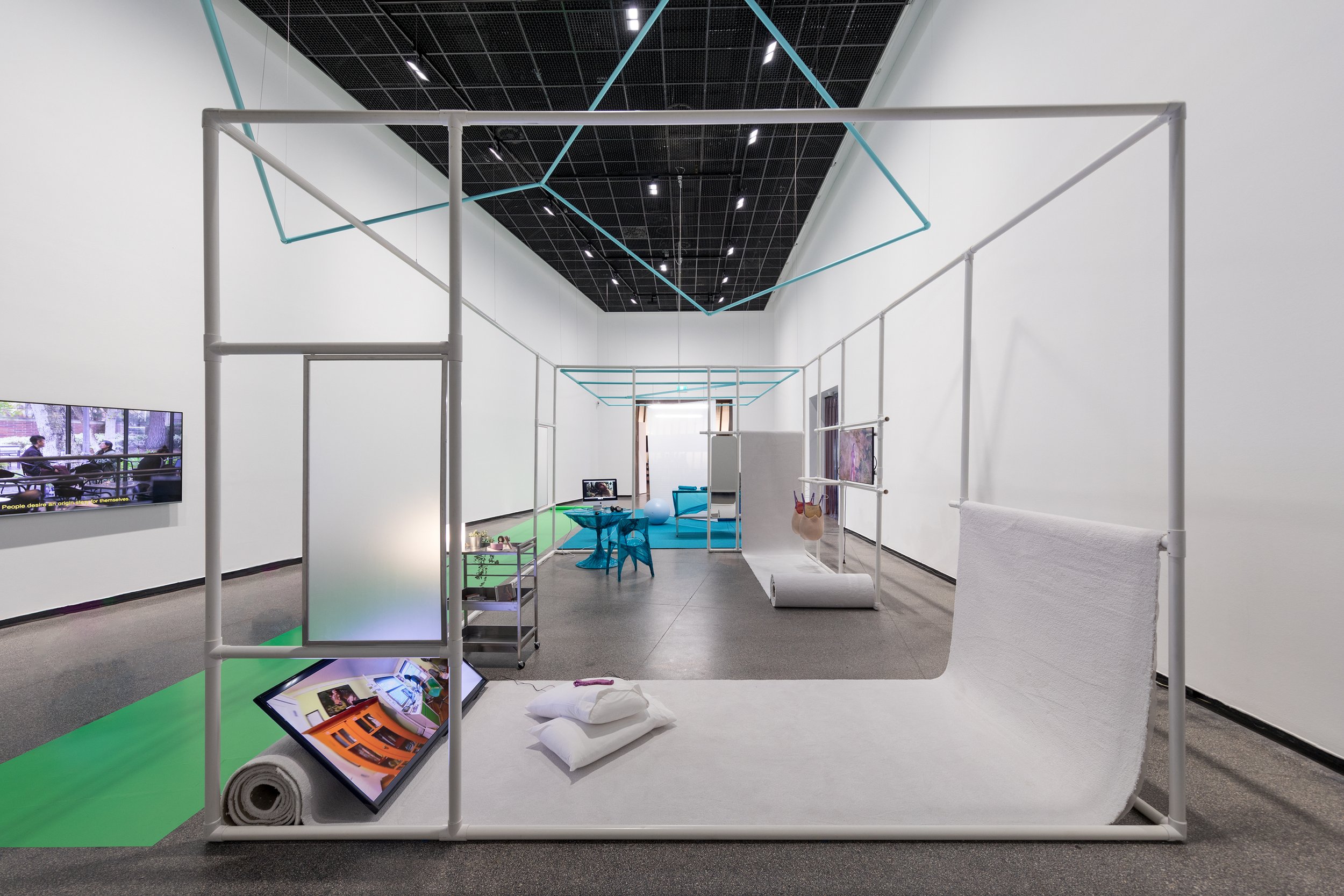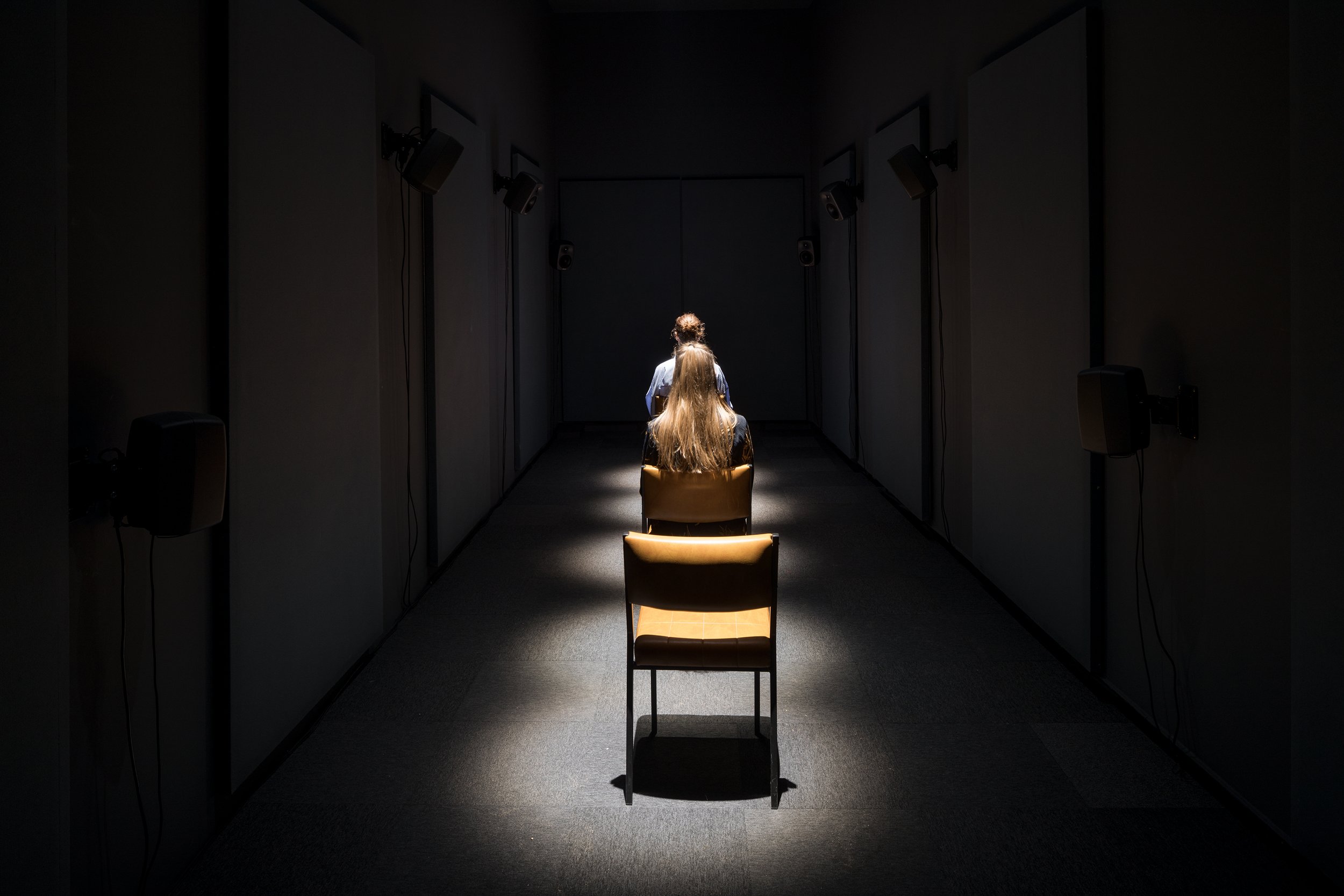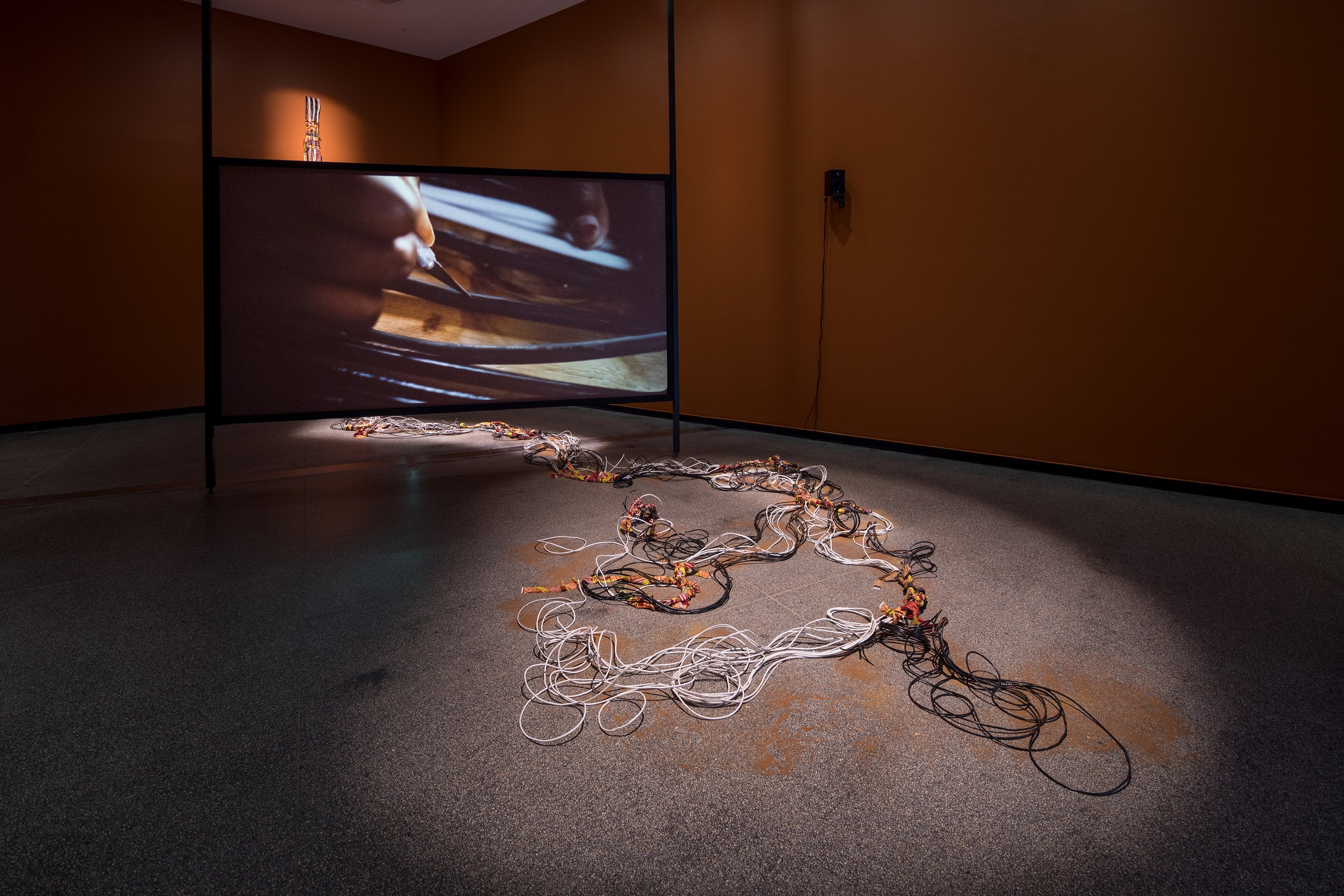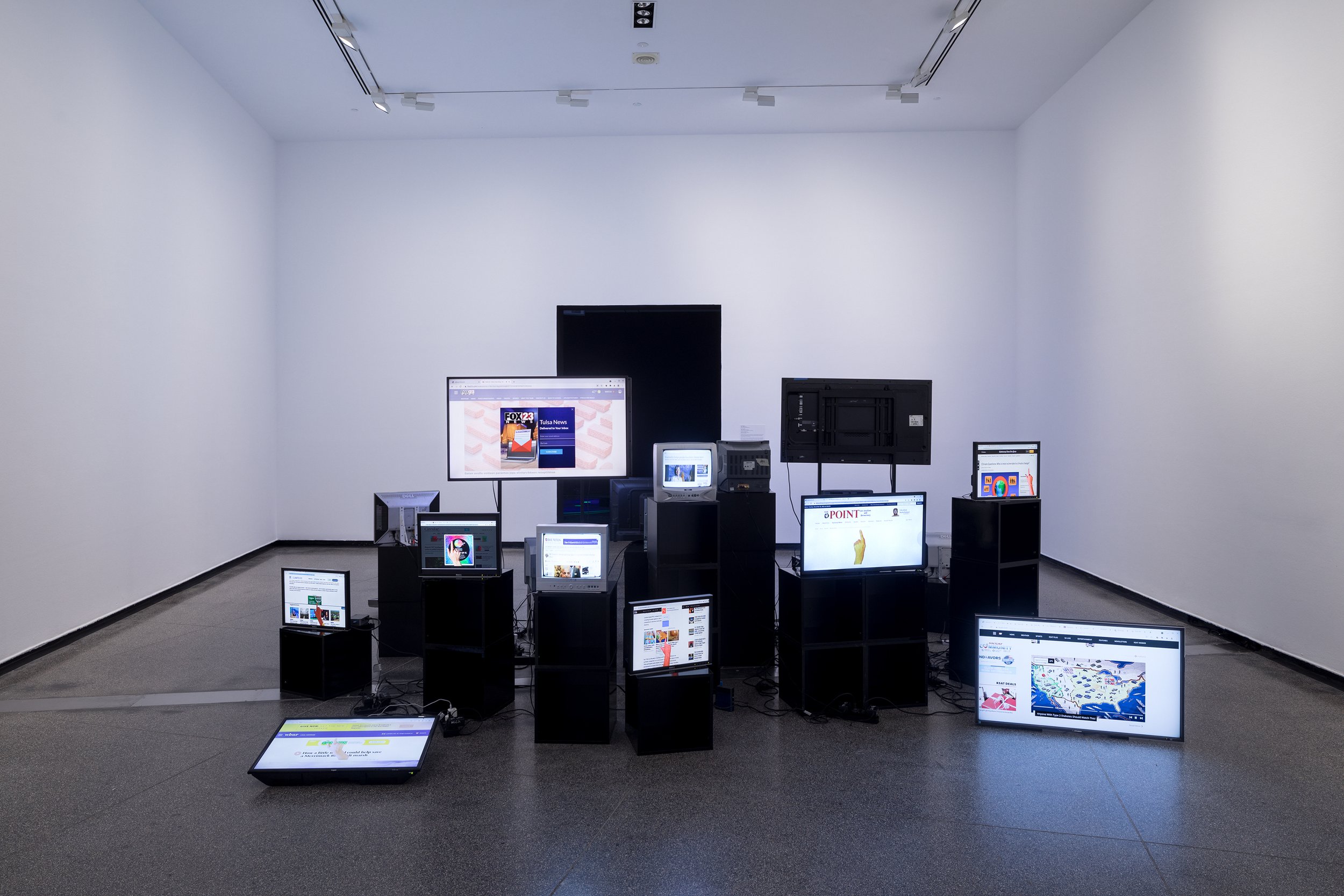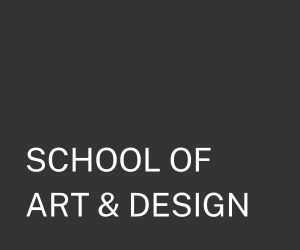Algorithmic shifts: ‘Data Relations’ at ACCA
/Having recently played at the Australian Centre for Contemporary Art (ACCA), ‘Data Relations’ was an innovative, international and often introspective look at how technology’s collection of information transforms our relationships within and between cultures. The media theorist Alexander R. Galloway, quoted by artist Zach Blas in his three-channel video on the troll as a figure of enchantment and entrapment, writes that data from its Latin root means ‘the things having been given’, and this exhibition showed that the ways in which we relate to data as individuals and cultures can, like a Trojan Horse, be a dubious gift.
The exhibition began by drawing lines from the past to the present. These lines, drawn by New York-based Nigerian artist and researcher Mimi Onuoha, set a tone of insightful inquest about how social bias and power dynamics are perpetuated by contemporary technological systems and networks. Her video These networks in our skin (2021) depicts four women braiding technological cables; in The cloth in the cable (2022), these braided cables were installed alongside custom-designed fabrics and spices by Naarm/Melbourne-based African homewares entrepreneur Dinzi Amobi-Sanderson. The works evoke the fact that the cables which power our split-second searches span along the same routes which powered the slave trade. This piece of critical context highlights Onuoha’s notion of ‘algorithmic violence’ and the way in which automated decision-making systems prevent human beings from exercising agency by anticipating, blocking and sometimes even meeting their needs.
It was a timely motif that ran through an exhibition that sought to ask how we understand the phenomena of these evolving, enframing and perhaps entrapping technologies. A work like the multi-channel sound installation After words (2022) by international collective Machine Listening emphasises not only that the internet is always listening and learning from human beings, but also how automated systems are actively trained to speak our language through sound recordings performed by actors.
It is a question that has relevance across languages and cultures, and this is also clear in Winnie Soon’s investigation into free expression and censorship, Unerasable characters I–III (2020–22), a software installation which shows how Chinese surveillance technologies censor social media in a series of artefacts that progress from the book to the screen. These pieces are based on Weiboscope, a website from the University of Hong Kong that monitors posts on the Chinese-language social-media website Weibo, both for their content and for the duration of time they exist online before they are erased. Soon’s trilogy emphasises the way data relates to political agency, and the way the transient pleasures of online engagement can lead to an overall erosion of our freedoms. It is a subtle and provocative exploration.
The political scope of the exhibition extended to the inaugural commission on ACCA’s new ‘Digital Wing’ platform: Offset 2023: Alternate carbon credit registry by New York-based artists Tega Brain and Sam Lavigne. The website proactively intervenes in the carbon economy by allowing activists to calculate the carbon offsets from direct action, emphasising how the political burden of intervening to stop climate change has been displaced onto the individual. Brain and Lavigne’s works are as playful as they are elegant, and the website is still accessible.
An intimate and arresting coda to the exhibition was provided by Lauren Lee McCarthy’s performance piece Surrogate (2022– ), an ongoing conceptual work where the Los Angeles-based artist allows prospective parents to control all aspects of a potential surrogacy using existing apps that raise questions about technology and agency at this most fundamental human level.
Vanessa Francesca, Naarm/Melbourne
Guest-curated by Miriam Kelly (with coordinating curator Shelley McSpedden), ‘Data Relations’ was exhibited at the Australian Centre for Contemporary Art, Naarm/Melbourne, 10 December 2022 – 19 March 2023.

